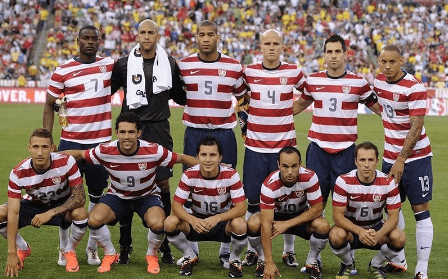United States Men’s National team fails to qualify for the World Cup
2 min read
otowns11.com
By SEAN BERMINGHAM
Staff Writer
On Oct. 10,, the United States men’s soccer team failed to qualify for the World Cup for the first time since 1986. This flop occurred seemingly against all odds, since the men’s team was rated at 97 percent going into the qualifiers making them favorable to earn a spot in the World Cup. The United States competes against other North and Central American teams and is often teased for having an easy time compared to some of the European and South American teams.
 Having lost to both Panama and Honduras while only needing to tie to move on to the World Cup, the final game ended with a 2-1 loss between Trinidad and Tobago, the ninety-ninth ranked team. It was downhill from there, with an own-goal by Omar Gonzalez, in the middle of the first half. This early goal helped Trinidad and Tobago psychologically, then they began playing better while the United States’ defense suffered because of the point.
Having lost to both Panama and Honduras while only needing to tie to move on to the World Cup, the final game ended with a 2-1 loss between Trinidad and Tobago, the ninety-ninth ranked team. It was downhill from there, with an own-goal by Omar Gonzalez, in the middle of the first half. This early goal helped Trinidad and Tobago psychologically, then they began playing better while the United States’ defense suffered because of the point.
Bruce Arena, the head coach of the United States Men’s National team, made a comment about not getting rising star, Christian Pulisic, involved enough in the game.
Soccer is not a popular sport in the United States compared to football, baseball, basketball or hockey, however this loss is significant for the revenue of the national team. The team put a large amount of its resources including about $22 million into its youth development program in 2016, because of this the fumble of not making it to the World Cup will make it even more difficult in future years to come.
This loss also has a societal impact that may increase the difficulty of making the qualifiers in the future. Since young kids are less likely to play a sport that is not represented at the global level, this impact could be avoided by the team’s performance in the Olympics.
The defeat also makes the choice for dual-citizenship players harder. Many of them live and play in the United States. However, if the United States is not represented internationally in the largest soccer tournament, then they will likely rather play for the secondary country they hold citizenship in. It also serves to make American players less appealing on the international players’ market where they are already rarely sought after.
The loss is bad news for Fox Sports which outbid ESPN for the rights to show the next two World Cups which they spent around $425 million for. Fox Sports has already scheduled over 350 hours of World Cup programming.


